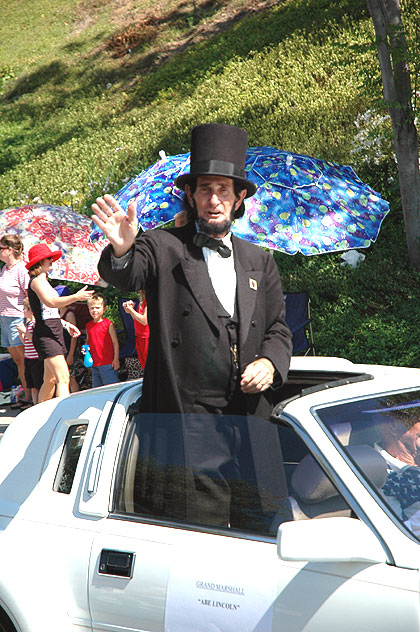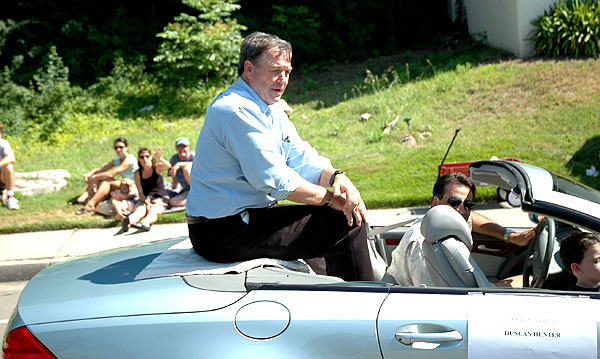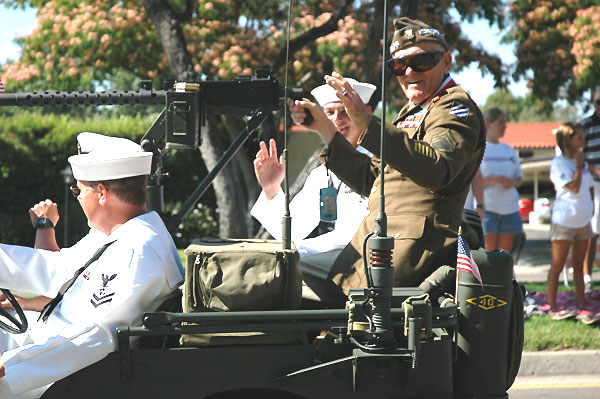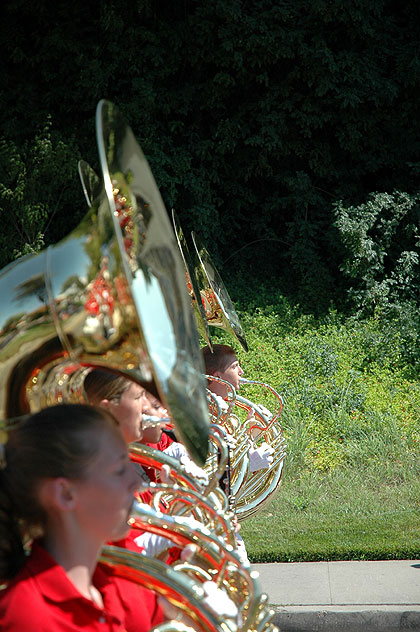When I left teaching in 1980 or so it was to get with the real world. Tried of being underpaid and hearing "those who can't do, teach," diving into the world of business seemed to offer a chance to "do" for a change - not to talk about things, but to participate in them, and make reasonable money. So it was hauling my sorry ass out of Rochester, New York, and moving to Los Angeles, where my sister and her family had ended up some years earlier, and hitting the bricks. In a few months I was doing, sort of, and living down in Manhattan Beach. So this is what the real world is like. That's what I told myself.
First at Northrop, then Hughes, it was working in "Training and Organizational Development" - but it was still teaching. These were, however, classes in supervision - how to manage difficult workers and play by the rules and motivate and reward, and reprimand, and all the rest - as if I knew. But they had scripts and all sort of audio-visuals that made it fairly straightforward, and if you can get seventh graders arguing about Macbeth and his motives, you can use some of the same techniques to get prima donna PhD engineers to be happy and productive workers, designing the next generation of electronics for the spy satellites. The new supervisors and managers needed all the help they could get, having been bumped up from being brilliant workers themselves to suddenly being bewildered bosses who didn't do the doing at all. They did the meetings, and the paperwork, the planning, and all the HR stuff - performance appraisals and the raises, coaching, hiring and firing. A good number of them were not entirely happy with that, but a promotion is a promotion. And that's how large organizations work - do something really well and you'll move up and not do it any more.
A few thrived. Many didn't. Those who thrived later became amazing executives, and those who didn't tried to remember what they had learned in "charm school" as they called it, and got stuck in that dreaded nowhere land of middle management, responsible for the work of those below them, and hammered by those above them for results, and not allowed to "do" anything. That's where I ended up, moving from the training thing to HR systems, coding clever little applications, then supervising those who did, then managing "systems shops" where I had not much idea what real work was being done two or three levels down, for which I was entirely responsible. Managing the business applications shop at a GM locomotive plant in Canada was a long way from those lazy afternoons in upstate New York, getting the kids to think about what Lady Macbeth was really up to, and writing something about it. How did that happen?
But those days are over. The systems world is an awful place, with all that "churn" and the outsourcing and the ever-changing technology, and no sense that anyone is ever safe. After stints at CSC and Perot Systems, where contracts come and go and the reorganizations move everyone around or out quite regularly, it seemed best to move on. The websites are fine. I'm retired.
In the middle of all the business stuff of course you had to read all the books on management theory - Tom Peters and that sort of thing. These books told how to get the most out of people, and be successful. "Management by walking around" made sense - be an open inquisitive presence, hourly if need be, and people will know you care about what's good on. It was all common sense, and rather obvious. These books made their authors rich, and they spoke at all those conventions you had to attend. I think this was supposed to be motivational. But nothing much can fix Salt Lake City or Las Vegas, stuck in a banquet room with five hundred of the clueless, sipping bad coffee and listing to the "insights" and worrying what's gone south back at the office.
And too there was the matter of values. Teaching English to kids from seventh to twelfth grade had that values stuff built in - help them develop the ability to understand what they read, to think critically as best they could, and help them learn to organize what they thought, and to write it down in a way others can understand. That was hard work, but it made sense. That's what they needed.
In the systems world it was a bit different. It was getting people to work well in threatening and chaotic circumstances, and like it, with the ultimate aim of keeping costs down, including the salaries you paid, so that the organization made scads of money and the shareholders were happy. It seemed a bit of a scam. Or maybe it was just detached from any sort of value, beyond the dollar.
This all came back when I came across an item in The New Statesman by Tom Hodgkinson, The Winner Takes It All. Tom Hodgkinson is editor of The Idler and author of "How to Be Idle" (Penguin) - and a bit of a wag, and blunt, as Brit writers can be when they deal with nonsense.
The item is a review of four of those management books -
Winning: the Ultimate Business How-To Book
Jack Welch with Suzy Welch, HarperCollins, ISBN 0007197675
You Can't Win a Fight With Your Boss and 55 Other Rules for Success
Tom Markert, HarperCollins, ISBN 0007227515
The Servant Leader: Unleashing The Power Of Your People - 50 Cautionary Tales for Managers
Peter Honey, How To Books, ISBN 0749445335
Bonjour Laziness: Why Hard Work Doesn't Pay
Corinne Maier, Orion, ISBN 1400096286
As you see, the first three are the management book, and that last one is the subversive one. That's why it was discussed in these pages off and on, most recently here, here, and by guest columnist Bob Patterson here. It "resonated," as they say. It's a values thing.
And Hodgkinson, in his review, dives right in the values issue, as a peculiarly American thing (British spelling, punctuation and usage maintained) - In 1736, the American Puritan Benjamin Franklin published a pamphlet called "Necessary Hints to Those That Would Be Rich"; this was followed in 1748 by "Advice to a Young Tradesman". In these early management training guides, Franklin outlines the principles of a new kind of capitalism, then in its infancy: riches are to be pursued for their own sake; it must be remembered that "time is money".
Franklin goes on to recommend hard work and stresses the importance of appearing industrious: "The most trifling actions that affect a man's credit are to be regarded. The sound of your hammer at five in the morning, or eight at night, heard by a creditor, makes him easy six months longer; but if he sees you at a billiard table, or hears your voice at a tavern, when you should be at work, he sends for his money the next day . . . it makes you appear a careful as well as an honest tradesman."
As Max Weber pointed out in The Protestant Ethic and the Spirit of Capitalism, Franklin promotes avarice, hypocrisy and the accumulation of wealth as if they were ethical principles. The emphasis is on how you are perceived. It doesn't matter if you go to the tavern - just don't let your boss see you there. Qualities such as honesty are promoted not because they are essential virtues, but because they might be useful business tools.
The scam has been going on a long time, but then, who's not to say avarice, hypocrisy and the accumulation of wealth are the real core of American ethics?
No, that couldn't be. Greed is good? Everything you do must be in the service of profit, growth and share price?
Let's see. Ten years in teaching, twenty-five in the business world. No, that seems about right.
And Hodgkinson is saying the first three of these books, on the secrets of "doing well" in business, promote what is "one of the central myths of capitalism - that, purely by virtue of hard work, anybody can get to the top."
Of course that's silly. If anyone could, they would, and everyone would be at the top, and then it wouldn't be the top, because everyone was there. It would be the dreaded middle. Maybe the books exist make you feel bad - you're not at the top, so you haven't been doing the right things, you inadequate slug. Maybe they aren't motivational at all, but written for depressives who want to think the worst of themselves.
And Hodgkinson, too, says the books recommend all sorts of immoral actions - In the old days, greed and covetousness were seen as sinful; now they are encouraged. Jack Welch's Winning sets the tone. The author grins manically from the cover - despite the silver hair, manicured nails and perfect teeth, he looks like Beelzebub incarnate. Welch became CEO of General Electric after beginning his corporate life in plastics. He is well known in the business world as a "great CEO" - which, roughly translated, means that he has made loads of money. So now he feels qualified to advise young men and women how to "win". As Welch explains in his grammar-free prose: "And that is what this book is about - winning. Probably no other topic could have made me want to write again! Because I think winning is great. Not good - great."
But why is "winning" so great? Because, says Welch, it enables people to make lots of money which . . . erm . . . enables them to "get better healthcare, buy vacation homes, and secure a comfortable retirement". That's it. Those are the three goals of our mortal existence, otherwise known as more pills, more mortgages and more burglar alarms. Whatever happened to joy, pleasure, brotherhood? Whatever happened to enjoying life? Whatever happened to creativity? Whatever happened to love?
Well, those are for high school teachers to discuss when such things come up in whatever book they're teaching. And curiously, in my last position those who worked for me were aghast because one of the senior executives thought Welch had the right idea - each year fire the fifth of the workforce with lowest performance appraisals, as there's no point in helping them improve their work. That takes too much time and just slows everything down, and costs a ton of money. What's the point? What was I to say, that it would never happen in our office? It was going to happen. Life is hard, and I had to do the performance appraisals on a curve - there would be a lowest twenty percent. What to say? I'd write a nice reference letter. We'd have a going way luncheon at a nice place, if I could play tricks with the budget to find the funds.
But Welch is big on honesty -"I have always been a huge proponent of candor," he says, before going on to explain why honesty is the best policy in business. Displaying his trademark Franklinesque hypocrisy, he advocates honesty in your dealings with others not because it is ethical, but because it can be useful for making money.
And there's this -Some of the traits Welch looks for in potential staff are a little worrying: "They're sports trivia nuts or they're fanatical supporters of their alma maters or they're political junkies." Nuts, fanatical, junkies: in the everyday world, being insane, a fundamentalist or a drug addict might be considered bad; in business, it seems, the crazier you are the better. All of which summons up a picture of a madhouse office, with grinning employees giving each other high-fives, shouting "whoop!" and exploding with joy because they have just beaten someone else to a pulp. And Welch warns that you can't be too mad: "Hire and promote only true believers and get-on-with-it types . . . ferret out and get rid of resisters, even if their performance is satisfactory."
Well, he may not be charming, but he is successful, in his own thuggish way. And he has his values. They just aren't very pretty.
As for the Markert book, You Can't Win a Fight With Your Boss, that one is just about working hard - "You can forget lunch breaks. You can't make money for a company while you're eating lunch . . . if you don't put in the hours, someone just as smart and clever as you will. Fact of life: the strong survive." Don't follow that advice "and you might just end up as roadkill - lying dead by the side of the corporate highway as others drive right past you." Thomas Hobbes lives
Of course out here in Hollywood there's the classic line that if you can fake sincerity you've got it made. It's not just Hollywood -Markert shares Welch's view that certain moral qualities can be useful in business - sincerity, for example, when sucking up to the boss ("The trick is to simply be sincere and charming"). He advises that "having friends at work is not a great idea", and he offers a staggering homily about plane travel. Markert claims that he always introduces himself to the person sitting next to him on the plane. Oh, that's sweet, you think. But then he explains this is "not to be nice"; it's because he wants to find out whether the other guy is a competitor before he gets out his laptop and displays confidential information. In such a world, even eating is seen as a business tool: "I'm a recent convert to eating well . . . food is fuel. Fuel is an element of performance. Bad fuel means low performance."
This is very utilitarian of course, or pragmatic. We American invented Pragmatism as a school of philosophy. Maybe we just don't do values.
The Neuschel book is more of this, and it all comes down to this -The same tenets are repeated in these books: all variety in life is subservient to the goal of making money; individual character traits are fine so long as they don't hinder profits and share prices. "Eccentricities are welcome provided they do not have a detrimental effect on people's performance," warns Peter Honey in 50 Cautionary Tales for Managers. None of these authors ever mentions what the company he works for actually makes. Not once does Welch or Markert talk of quality of craftsmanship or the satisfaction of creativity; their sole interest is in growth, success and profits. Where the profits come from is immaterial. It could be cat food, computers or cars, any old stuff - as long as it makes money.
Hodgkinson say these books are just "sophisticated whips for slaves." He quotes Raoul Vaneigem - "Every call for productivity under the conditions chosen by capitalist economics is a call to slavery." That did occur to some of us in management, when told to get more out of people, but there was no money for raises, so we had to attended workshops on "no monitary reinforcement and motivation" - the brainstorming session were just depressing.
But that worked for some - heap on the praise, let them leave early and come in late now and then, as they're working at home too. We've all managed a few of these gung-ho happy workaholics. They can be scary. Just what are their values? What do the think, or feel, or dream? Vaneigem - "Nowadays ambition and the love of a job well done are the indelible mark of defeat and of the most mindless submission."
As for the hyper-successful authors of these books, Hodgkinson says this -These architects of misery never exhibit the slightest concern for ecological issues: these are the sorts of guys who have been wrecking the planet, yet they present themselves as heroes. Nor, unsurprisingly, do they acknowledge the role of good fortune in business. They never say: I was just lucky in that, for 20 years, the markets went my way and I have no idea why.
They like that illusion of control, but how much of their brilliant success was just plain dumb luck, as Chaos Theory would and will demonstrate?
For a discussion of that see this, where Leonard Mlodinow, the author of those books on physics and mathematics - Feynman's Rainbow, Euclid's Window: The Story of Geometry from Parallel Lines to Hyperspace and, with Stephen Hawking, A Briefer History of Time - discusses the Hollywood executives out here who believe their success is based on great decisions they've made and their management skills, when really whether any one movie is a hit or a flop can be explained best by Chaos Theory and information cascades and all that. The mathematical concepts are complex, but explained clearly. The item is long, and amazing. Any movie can be a hit or a flop, and there's not much way to tell which it will be. That is demonstrated mathematically, with plenty of examples. You only have the illusion of control. It's a scam too.
Hodgkinson really likes Corinne Maier's Bonjour Laziness - she knows a scam when she sees one. That's why that one has been discussed in these pages.
And all I can feel is gratefulness. Hodgkinson read these nasty books. Facing that would be too depressing. Those days are over. No more of that.
But that's the business side of things. There are other American vales, as we are a religious nation - a pious nation. Outside the world of Islam and the nations which with we are now in conflict, you will find no more hyper-religious state. We'll match them scriptural revelation to scriptural revelation, the Bible faces the Koran in a showdown of righteousness. We're not all about making money. We're about doing God's work here on earth. And that's a different sort of management theory.
Amy Sullivan explains here, and it's a bit complicated -For the past six years, the most prominent Christian in America has been the president. His belief is not of the "God said it. I believe it. That settles it," sort that fundamentalists embrace. Rather, Bush subscribes to a syllogistic doctrine of presidential infallibility: God works through Christians; I am a Christian; I have decided to do X; therefore, X is God's will.
Bush is known to start each day reading a devotional from My Utmost for His Highest, a collection of essays by 19th-century Scottish minister Oswald Chambers. As Bob Wright explained in the New York Times a few years ago, Chambers had a very simple - some might say comforting - view of divine will. "The basic idea" Wright wrote, "is that once you surrender to God, divine guidance is palpable." The only questioning involved is whether one carries out God's will, not whether one correctly interprets it.
Those who accuse Bush of being a theocrat have made much of his reported belief that God speaks through him. That's not entirely fair, because what Bush refers to is a fairly common hope among believers that God will use each of us to be instruments of justice and mercy and grace. "May the words of my mouth and the meditations of my heart be acceptable in Your sight," from Psalm 19, is a prayer many Christians recite. It's just that most of us don't express this as a confident assertion that God does in fact speak through us. Instead, the prayer is a humble plea.
But the man isn't humble. And he's at the top of the heap, king of the mountain. So that's a management approach too.
What to make of all this, the Brit reviewing the management books and ragging on Ben Franklin? And this business about doing God's work when you manage things? What are our values?
Monday, July 3, 2006, there was this -People in Britain view the United States as a vulgar, crime-ridden society obsessed with money and led by an incompetent president whose Iraq policy is failing, according to a newspaper poll.
The United States is no longer a symbol of hope to Britain and the British no longer have confidence in their transatlantic cousins to lead global affairs, according to the poll published in The Daily Telegraph.
The YouGov poll found that 77 percent of respondents disagreed with the statement that the US is "a beacon of hope for the world".
As Americans prepared to celebrate the 230th anniversary of their independence on Tuesday, the poll found that only 12 percent of Britons trust them to act wisely on the global stage. This is half the number who had faith in the Vietnam-scarred White House of 1975.
A massive 83 percent of those questioned said that the United States doesn't care what the rest of the world thinks.
... US President George W. Bush fared significantly worse, with just one percent rating him a "great leader" against 77 percent who deemed him a "pretty poor" or "terrible" leader.
More than two-thirds who offered an opinion said America is essentially an imperial power seeking world domination. And 81 per cent of those who took a view said President George W Bush hypocritically championed democracy as a cover for the pursuit of American self-interests.
... In answer to other questions, a majority of the Britons questions described Americans as uncaring, divided by class, awash in violent crime, vulgar, preoccupied with money, ignorant of the outside world, racially divided, uncultured and in the most overwhelming result (90 percent of respondents) dominated by big business.
Yeah, but they drink warm beer, and they have those football hooligans (and they perversely call soccer football when we know what that is), and the queen wears funny hats. We have all the money, and we have God on our side. What do they know?
The poll, the review of the management books, appear on the same day, just as the United States celebrates our two hundred thirtieth July Fourth. It's time to examine the values. Again.













 Ooops, that kind of gives it away. Tonight I went to see the Portuguese win at the Café au Château, a nearby mini-version of Porto right here in the 14th. All is very quiet on the streets here during a match and you could hear cats shedding as I neared the café, when about half a block short, a huge cheer or moan sounded. It sounded like a bomb in the stillness, coming as it did from the 700 nearest open windows.
Ooops, that kind of gives it away. Tonight I went to see the Portuguese win at the Café au Château, a nearby mini-version of Porto right here in the 14th. All is very quiet on the streets here during a match and you could hear cats shedding as I neared the café, when about half a block short, a huge cheer or moan sounded. It sounded like a bomb in the stillness, coming as it did from the 700 nearest open windows.